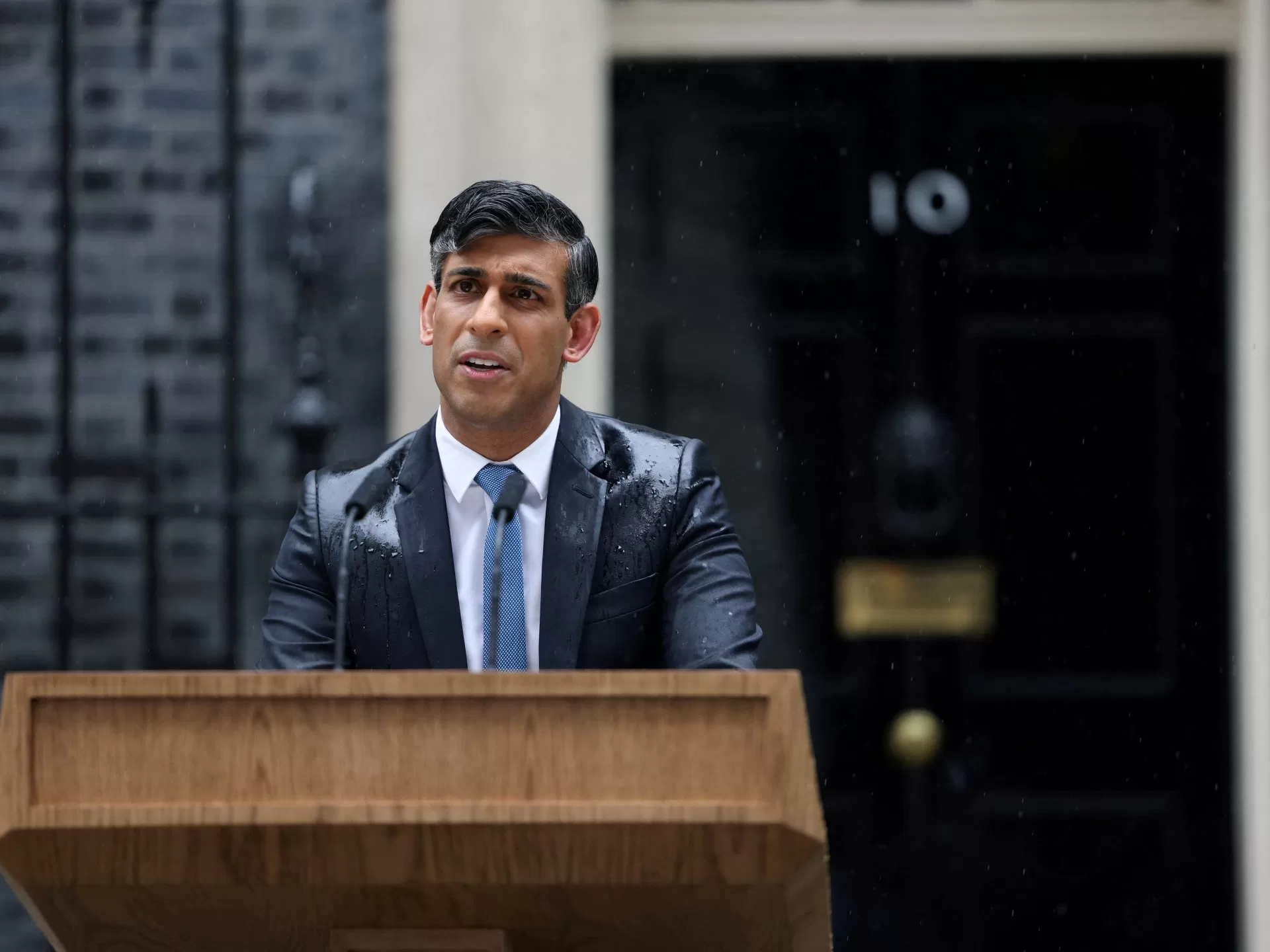Prime Minister Rishi Sunak sets date for national election, ending months of speculation as to the timing of the poll.
Ending months of speculation as to when he would call a new poll, Sunak, 44, stood outside his Downing Street office on Wednesday and announced he was calling the election earlier than some had expected.
“Now is the moment for Britain to choose its future,” he said, listing what he considers to be the highlights of his time in government, including the introduction of the so-called furlough scheme that helped businesses through the COVID-19 pandemic. “We will have a general election on July 4.”
Sunak heads into the election not only far behind the Labour Party in the polls but also somewhat isolated from some in his party, increasingly dependent on a small team of advisers to steer him through what is set to be an ugly campaign.
Sunak took office less than two years ago and since then has struggled to define what he stands for, becoming increasingly frustrated that what he sees as his successes have failed to be appreciated.
Both parties have all but kicked off campaigning for an election, with the attack lines on the economy and on defence already firmly drawn.
The Labour party said on Wednesday it was more than ready for an election.
“We are fully ready to go whenever the prime minister calls an election. We have a fully organised and operational campaign ready to go and we think the country is crying out for a general election,” Labour leader Keir Starmer’s spokesperson told reporters ahead of Sunak’s announcement.
British elections must be held at least every five years, but the timing is the prime minister’s choice.
Sunak’s Conservatives are running way behind Labour in the opinion polls, and despite hailing a decline in inflation and an increase in defence spending, they have failed to make a dent in the opposition party’s lead.
Sunak is the third Conservative prime minister since the last election in 2019. He managed to steady the economy, but without boosting the Conservatives’ popularity with the public.
He may take heart from figures released Wednesday showing inflation in the UK fell sharply to 2.3 percent, its lowest level in nearly three years on the back of big declines in domestic bills.
But Labour has held a lead over the Conservatives of around 20 points in opinion polls since late 2021 – before Sunak took office in October of that year.
